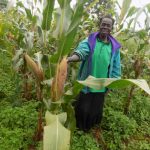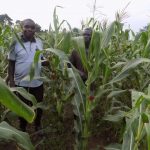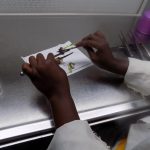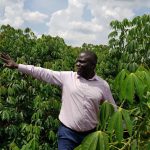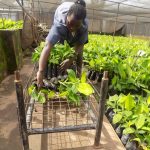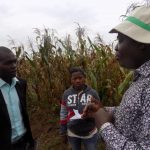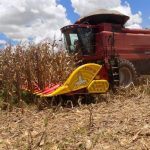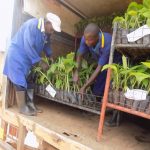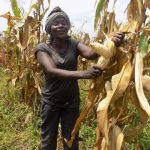Landuse planning key for climate change adaptation-expert.
4 min read
By Christopher Bendana
Kampala
Arend Jan Bodegom is a Dutch climate change adaptation expert. He is a senior expert in Climate Change at the Centre for Development Innovation (CDI) at Wageningen University.
He has been the lead trainer in a program ‘Climate Change Adaptation in Food Security and Nature Resource Management’ held here in Uganda for the last 9 years.
The program, a collaboration between Makerere University College of Agricultural and Environmental Science and CDI brings in Uganda environmental and food security professionals from Asia, Latin America, and Europe. Nearly all are sponsored under the Netherlands Fellowships Program.
Qn. Arend, Glad to see you again in Uganda, why did you chose to have this training in Uganda
Originally the course was a cooperation between the government of The Netherlands and several institutions in Eastern Africa. We continued this course in Uganda because we can show nice examples of climate change adaptation in the field. Every year we visit farms near Masaka and Rakai. That gives the possibilities for participants to check ideas and theories with reality. Also, our cooperation with Makerere University is very helpful in this aspect. Their input is vital for the success of the course.
Qn. You have had this training for the last 9 here in Uganda. Are you satisfied with the level of agricultural adaptation that is being implemented?
I see farmers struggle to adopt new technologies. Some of them are very market-oriented and clever in producing the right product at the right time. Others are exchanging technologies with the neighbor. There is also the issue of organizing farmers in cooperatives. During the last years I have seen more examples of this then before and I hope this is a general trend. Cooperatives are good as they can help the farmers get a fair price, they can do the processing of the agricultural produce (e.g. coffee), share new technologies and approaches, and can help in marketing.
Qn. Where do we have to improve?
There is no land use planning, that is planning above the level of the individual farm. You need government initiative in aspects like soil erosion, protection of slopes and land use management. Another vital aspect is the lack of investment funds. I learned that the interest rates are very high in Uganda. So farmers often avoid taking a loan from a bank. Still for effective adaptation, investments are needed. We visited water harvesting tanks: water was harvested in the rainy period and used in the dry period. These tanks were established with the help of a project that stopped long ago. We need banks to give loans with a reasonable interest rate so that such examples are replicated in other farms. Then the farmers can easily adapt when they have the resources.
There is another issue that worries me a lot. I often see the excessive use of pesticides. Because of climate change in many areas in Uganda coffee growing will become more difficult. There will be more pests and farmers fight against them using more pesticides, without taking sufficient precautions for their health and the environment.
Qn. You talk about gender equity in improving adaptations. What is the mathematics here
Many organizations are male-dominated. Projects and research are often focusing on men, while a lot of work on the farm is being done by women. Women are generally more negatively affected by climate change than men. Women are often not sufficiently involved in decision making and taking. Fortunately, there are also good examples. We see groups of farmers where women take the lead and where good cooperation leads to nice results. But adaptation is not only about women, but young people also have a less favorable position (e.g. less or no land) compared to older men. So adaptation programs need to look at different target groups and propose tailor-made solutions.
Qn. You see, you are worried about Uganda’s population, but many people mean markets?
Yes, but look. What is the average acreage of a Ugandan farmer and it is decreasing with every coming new generation. The population is increasing rapidly and mind you the land is static. If Uganda’s current population growth continues, in about 20 years the population will have doubled. You will need to do a lot of land intensification. The pace of innovation I am worried will not match the increase in population.
Qn. There is a cry for resources (money) and expertise to help in climate change adaptation and mitigation. How can Africa raise the two?
At the international level, I see many initiatives where big amounts of money are mentioned to deal with climate change. Much of the investments go to countries like China and India, certainly not the poorest countries. There is an enormous bureaucracy from the international level down to farm level, before the money that has been pledged, can reach the ground. And not only bureaucracy, but I also mean corruption. The result is that not much of that money reaches the ground level. That is a shame. This situation can continue in my view because it is not considered a severe problem that needs a solution by all parties involved. Climate change affects us all and is going to affect us more, and most of all disadvantaged groups in developing countries like Uganda. So I am very happy with a young person like your fellow citizen Hilda Nakabuye, who is raising awareness in Uganda and elsewhere on the climate crisis. She presented her ideas in a seminar that was organized during our course in February at Makerere University. She is very active e.g. on social media. Public awareness should raise pressure on governments in Africa and in rich countries, to take up the issue with more seriousness.
